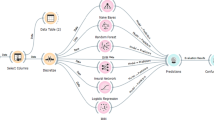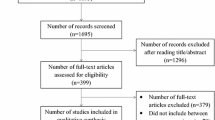Abstract
These days, improving students’ learning and work efficiency needs a comprehensive approach to their physical and mental well-being, which emphasizes the critical role of teachers and institutions. To optimize the responsibilities of physical teachers and coaches, efficient administration of physical education, including sports activities, and a strong quality assurance system are required. Based on the above, this paper proposes an Artificial Intelligence (AI)-based sports management system to enhance work efficiency and ease of physical education teachers and coaches. It aims to make an in-depth study on the construction of sports performance management and physical analysis system based on data mining; later, it includes the construction of sports management systems. This paper operates in such a way that it first discusses the sports performance management and physical analysis system's construction. Second, it analyses the overall framework structure of the system by presenting a detailed description of the sports test management and test items management. In addition, it analyses sports performance management and sports performance, system management and physical performance and other functional modules contained in the system along with the database design in the system based on C4.5 that is then used as the Decision Tree (DT) Classifier for data mining. Third, it uses sports performance management of DT, and the physical analysis algorithm uses the data information gained to select the split attributes. Fourth, it divides the sports performance training data set into multiple sub-datasets to construct the performance management and physical analysis system based on data mining. Finally, the suggested system is compared with existing approaches and obtains an accuracy of 97%, which is 27% high than the selected approaches. Simulation experiments show that the proposed method has high accuracy in data mining related to sports performance and can effectively improve the efficiency and quality of physical education teachers. The proposed system will be an addition to intelligent task management with high feasibility and accuracy.

















Similar content being viewed by others
Availability of data and materials
Not applicable.
References
Aakash K, Shaikh AM, Li Y et al (2021) Pruning filters with L1-norm and capped L1-norm for CNN compression. Appl Intell 51:1152–1160. https://doi.org/10.1007/s10489-020-01894-y
Ali M, Yin B, Kunar A, Sheikh AM et al (2020) Reduction of multiplications in convolutional neural networks. In: 2020 39th Chinese Control Conference (CCC) (pp 7406–7411). IEEE. https://doi.org/10.23919/CCC50068.2020.9188843
Aslam (2020) Co-design method for H∞ control of quantized TS fuzzy system over the networked system. J Intell Fuzzy Syst 39(1):771–788
Aslam MS (2021) L 2–L∞ control for delayed singular markov switch system with nonlinear actuator faults. Int J Fuzzy Syst 23(7):2297–2308
Bai B (2021) Construction of functional structure model of university smart gymnasium under the background of "Internet+". In: 2021 International Conference on Health Big Data and Smart Sports (HBDSS) (pp 172–176). IEEE Transactions on Image Processing
Chen Z (2019) Observer-based dissipative output feedback control for network T-S fuzzy systems under time delays with mismatch premise. Nonlinear Dyn 95:2923–2941
Chen G, Chen P, Huang W, Zhai J (2022) Continuance intention mechanism of middle school student users on online learning platform based on qualitative comparative analysis method. Math Prob Eng 2022:Article ID 3215337. https://doi.org/10.1155/2022/3215337. (12 pages)
Cheng B, Wang M, Zhao S, Zhai Z, Zhu D et al (2017) Situation-aware dynamic service coordination in an IoT environment. IEEE/ACM Trans Netw 25(4):2082–2095. https://doi.org/10.1109/TNET.2017.2705239
Cheng L, Yin F, Theodoridis S, Chatzis S, Chang T (2022) Rethinking bayesian learning for data analysis: the art of prior and inference in sparsity-aware modeling. IEEE Signal Process Mag. https://doi.org/10.1109/MSP.2022.3198201
Dai MS, Hou X, Li J, Ullah Q, Ni R et al (2020) Reliable control design for composite-driven scheme based on delay networked T-S fuzzy system. Int J Robust Nonlinear Control 30(4):1622–1642
Hazrat B, Yin B, Kumar A, Ali M, Zhang J, Yao J (2023) Jerk-bounded trajectory planning for rotary flexible joint manipulator: an experimental approach. Soft Comput 27(7):4029–4039. https://doi.org/10.1007/s00500-023-07923-5
Jiang H, Wang M, Zhao P, Xiao Z, Dustdar S (2021) A utility-aware general framework with quantifiable privacy preservation for destination prediction in LBSs. IEEE/ACM Trans Netw 29(5):2228–2241. https://doi.org/10.1109/TNET.2021.3084251
Li Y (2022) Design of sports competition information issuing system based on fuzzy website generation system. In: 2022 6th International Conference on Computing Methodologies and Communication (ICCMC) (pp 1451–1454). IEEE
Li Q, Hou J (2021) Fault detection for asynchronous T-S fuzzy networked Markov jump systems with new event-triggered scheme. IET Control Theory Appl 15(11):1461–1473
Li T, Li Y, Hoque MA, Xia T, Tarkoma S et al (2022a) To what extent we repeat ourselves? Discovering daily activity patterns across mobile app usage. IEEE Trans Mob Comput 21(4):1492–1507. https://doi.org/10.1109/TMC.2020.3021987
Li K, Ji L, Yang S, Li H, Liao X (2022b) Couple-group consensus of cooperative-competitive heterogeneous multiagent systems: a fully distributed event-triggered and pinning control method. IEEE Trans Cybern 52(6):4907–4915. https://doi.org/10.1109/TCYB.2020.3024551
Liu Y, Wang K, Liu L, Lan H, Lin L (2022) Tcgl: temporal contrastive graph for self-supervised video representation learning. IEEE Trans Image Process 31:1978–1993. https://doi.org/10.1109/TIP.2022.3147032
Liu X, Shi T, Zhou G, Liu M, Yin Z, Yin L et al (2023a) Emotion classification for short texts: an improved multi-label method. Human Soc Sci Commun 10(1):306. https://doi.org/10.1057/s41599-023-01816-6
Liu J, Fan C, Peng Y, Du J, Wang Z et al (2023b) Emergent leader-follower relationship in networked multiagent systems. Sci China Inf Sci. https://doi.org/10.1007/s11432-022-3741-3
Liu X, Zhou G, Kong M, Yin Z, Li X, Yin L et al (2023c) Developing multi-labelled corpus of twitter short texts: a semi-automatic method. Systems 11(8):390. https://doi.org/10.3390/systems11080390
Lu S, Liu M, Yin L, Yin Z, Liu X, Zheng W et al (2023) The multi-modal fusion in visual question answering: a review of attention mechanisms. PeerJ Comput Sci 9:e1400. https://doi.org/10.7717/peerj-cs.1400
Lv Z, Qiao L, Hossain MS, Choi BJ (2021) Analysis of using blockchain to protect the privacy of drone big data. IEEE Netw 35(1):44–49. https://doi.org/10.1109/MNET.011.2000154
Lv Z, Chen D, Lv H (2022) Smart city construction and management by digital twins and BIM big data in COVID-19 scenario. ACM Trans Multimed Comput Commun Appl. https://doi.org/10.1145/3529395
Mahony DF, Madrigal R, Howard D (1999) The effect of individual levels of self-monitoring on loyalty to professional football teams (Self-Monitoring on Loyalty). Int J Sports Market Sponsor 1(2):146–168
Meng F, Xiao X, Wang J (2022) Rating the crisis of online public opinion using a multi-level index system. Int Arab J Inf Technol 19(4):597–608. https://doi.org/10.34028/iajit/19/4/4
Oytun M, Tinazci C, Sekeroglu B, Acikada C, Yavuz HU (2020) Performance prediction and evaluation in female handball players using machine learning models. IEEE Access 8:116321–116335
Shen Y, Ding N, Zheng HT, Li Y, Yang M (2021) Modeling relation paths for knowledge graph completion. IEEE Trans Knowl Data Eng 33(11):3607–3617. https://doi.org/10.1109/TKDE.2020.2970044
Su C, Chen W (2022) Design of remote real-time monitoring and control management system for smart home equipment based on wireless multihop sensor network. J Sens 2022:1–10
Ullah R, Dai X, Sheng A (2020) Event-triggered scheme for fault detection and isolation of non-linear system with time-varying delay. IET Control Theory Appl 14(16):2429–2438
Wang L, Zhai Q, Yin B et al (2019) Second-order convolutional network for crowd counting. In: Proceeding of SPIE 11198, Fourth International Workshop on Pattern Recognition, 111980T (31 July 2019); https://doi.org/10.1117/12.2540362
Wei Y, Guo Y, Wu Y and Guo J (2017) Experimental validation of fuzzy PID control of flexible joint system in presence of uncertainties. In: 2017 36th Chinese Control Conference (CCC) (pp 4192–4197). IEEE. https://doi.org/10.23919/ChiCC.2017.8028015
Xu H, Sun Z, Cao Y et al (2023) A data-driven approach for intrusion and anomaly detection using automated machine learning for the Internet of Things. Soft Comput. https://doi.org/10.1007/s00500-023-09037-4
Yang S, Li Q, Li W, Li X, Liu A (2022) Dual-level representation enhancement on characteristic and context for image-text retrieval. IEEE Trans Circ Syst Video Technol 32(11):8037–8050. https://doi.org/10.1109/TCSVT.2022.3182426
Yin B, Khan J, Wang L, Zhang J and Kumar A (2019) Real-time lane detection and tracking for advanced driver assistance systems. In: 2019 Chinese Control Conference (CCC) (pp 6772–6777). IEEE. https://doi.org/10.23919/ChiCC.2019.8866334
Yin B, Aslam MS et al (2023) A practical study of active disturbance rejection control for rotary flexible joint robot manipulator. Soft Comput 27:4987–5001. https://doi.org/10.1007/s00500-023-08026-x
Zhou X, Sun K, Wang J, Zhao J, Feng C, Yang Y et al (2023) Computer vision enabled building digital twin using building information model. IEEE Trans Industr Inf 19(3):2684–2692. https://doi.org/10.1109/TII.2022.3190366
Zhu H, Xue M, Wang Y, Yuan G, Li X (2022) Fast visual tracking with Siamese oriented region proposal network. IEEE Signal Process Lett 29:1437. https://doi.org/10.1109/LSP.2022.3178656
Funding
No funding was provided for the completion of this study. No funds, grants, or other support was received.
Author information
Authors and Affiliations
Corresponding author
Ethics declarations
Conflict of interest
The authors have no financial or proprietary interests in any material discussed in this article. The authors declare that they have no conflict of interest.
Ethical approval
Not applicable.
Informed consent
Not applicable.
Additional information
Publisher's Note
Springer Nature remains neutral with regard to jurisdictional claims in published maps and institutional affiliations.
Rights and permissions
Springer Nature or its licensor (e.g. a society or other partner) holds exclusive rights to this article under a publishing agreement with the author(s) or other rightsholder(s); author self-archiving of the accepted manuscript version of this article is solely governed by the terms of such publishing agreement and applicable law.
About this article
Cite this article
Feng, J. Designing an Artificial Intelligence-based sport management system using big data. Soft Comput 27, 16331–16352 (2023). https://doi.org/10.1007/s00500-023-09162-0
Accepted:
Published:
Issue Date:
DOI: https://doi.org/10.1007/s00500-023-09162-0




